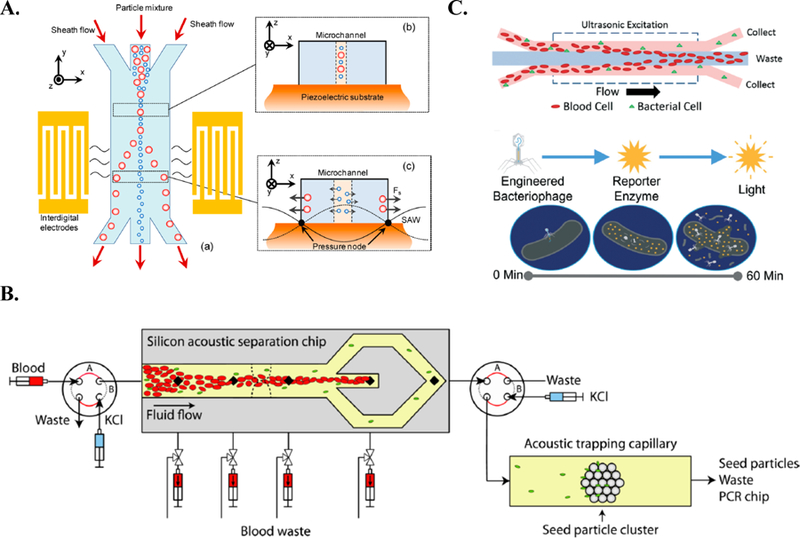Figure 4.

Acoustic separation platforms for the isolation of bacteria from blood. A. Overview of Ai et al. platform, which employed two parallel acoustic waves to focus bacteria in the center of the microchannel 2. Reprinted with permission from https://pubs.acs.org/doi/10.1021/ac4017715. Copyright 2013 American Chemical Society. Further permissions related to the material excerpted should be directed to the ACS. B. Overview of Ohlsson et al. workflow. First, RBCs are focused in the center of the channel. Next, bacteria are acoustically trapped on a seeded particle and profiled using PCR 82. Reprinted with permission from https://pubs.acs.org/doi/abs/10.1021%2Facs.analchem.6b00323. Copyright 2016 American Chemical Society. Further permissions related to the material excerpted should be directed to the ACS. C. Methodology proposed by Dow et al. First, the bacterial sample is enriched on a plastic microdevice. Enriched sample is exposed to bacteriophage luminescence assay 27. Republished with permission of Royal Society of Chemistry from, Acoustic separation in plastic microfluidics for rapid detection of bacteria in blood using engineered bacteriophage, Dow et al., 18, 2018; permission conveyed through Copyright Clearance Center, Inc.
